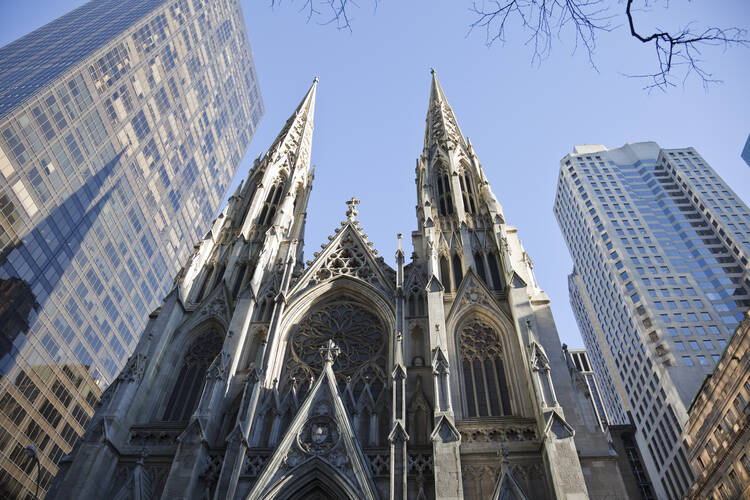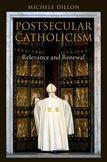Review: Negotiating tensions in a postsecular world
Michele Dillon’s Postsecular Catholicism brilliantly analyzes the ways Catholicism engages our current social world. Her writing is accessible and clear, without missing the complexities and tensions inherent in the work that Catholics are undertaking. Dillon examines more than a few subjects: Catholicism globally and in the U.S. context; what happens to ideas when they hit realities; what it means for both the sacred and the secular to be mutually relevant; and how change, tradition and authority are understood by Catholics and the world in which they are embedded.
The book contends that we have moved from a secular public sphere—marked by separate and specialized spheres of economy, science, faith and so forth that manage their own concerns in an insular way—to a postsecular public sphere, in which a multiplicity of voices and expertise are welcome to weigh in on an issue. Catholicism, she argues, will have postsecular relevance insofar as it goes beyond talking about difference and instead talks with difference.
For example, the Synod on the Family would not have been as productive without dialogue. I use the word “productive” here not only to indicate the valuable document that came from it but also to describe, as Dillon notes, the bridge-building and understanding amid differences that emerged from the work of dialogue. Dillon illustrates that often the process itself can result in important intangible fruits, like relationship and widened perspectives.
Dillon’s familiarity with both a postsecular landscape and her fluency in Catholic concerns and interests allow her to cogently illustrate the overlap between Catholicism and the broader social world as well as the tensions that are inherent to a postsecular Catholicism.
Dillon’s book not only offers a sociological analysis of the ways Catholicism negotiates the tension between the forces of tradition and those of change, but she also homes in on one of Catholicism’s postsecular struggles that underlies that thesis: the question of whether doctrinal change undermines authority. She notes that the doctrinal division among the participants in the Synod on the Family themselves points to the interpretive diversity and the plurality of voices that characterize Catholicism. Dillon astutely observes that doctrine changes slightly but significantly.
Dillon’s familiarity with both a postsecular landscape and her fluency in Catholic concerns and interests allow her to cogently illustrate the overlap between Catholicism and the broader social world as well as the tensions that are inherent to a postsecular Catholicism. This is a must-read for academics who study religion or civic engagement as well as involved Catholics and their leaders.
This article also appeared in print, under the headline “Negotiating tensions,” in the October 15, 2018, issue.









